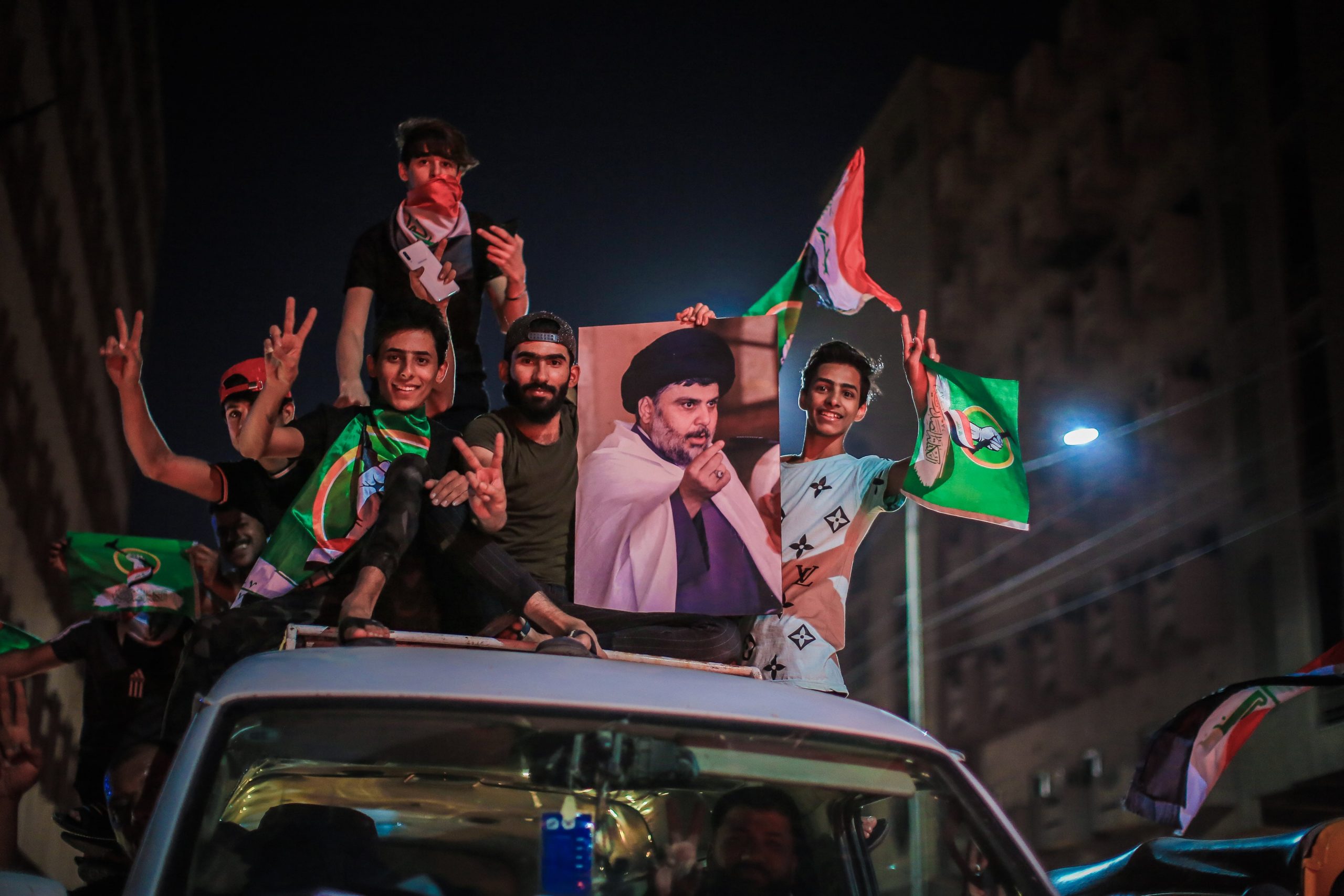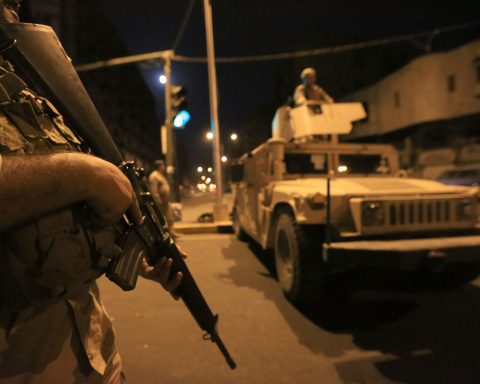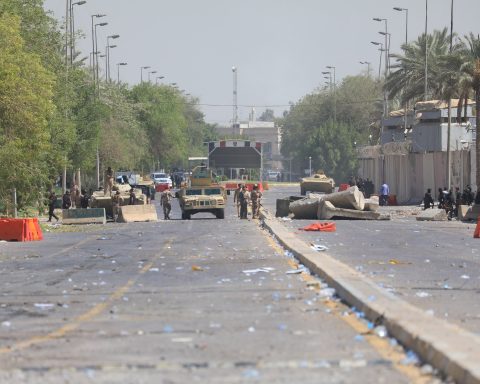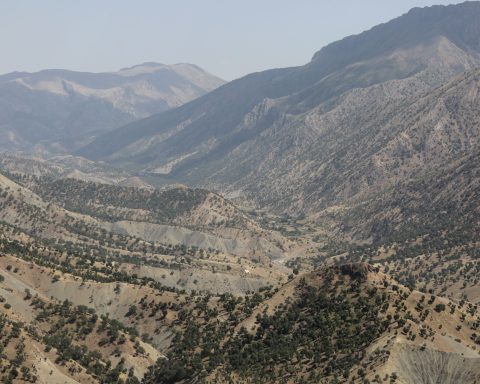The casting of nine million votes out of 26 million in the Iraqi snap election, held on October 10, 2021, recorded the lowest turnout of 41 percent since the invasion. The early election was decided after long mass protests caused by worsening economic, political, security, and social problems since the 2018 election. The low turnout was interpreted as an indication of social discomfort and despair with the system and people’s disappointment with politics. The election results surprised many as the Sadr Bloc, supported by firebrand Shia leader Muqtada al-Sadr, and the Kurdistan Democratic Party (KDP), led by Massoud Barzani, claimed victory in Iraq and the Kurdish Regional Government of Iraq (KRG), respectively. The success of Sunni leader Mohamed al-Halbousi’s Taqaddum Coalition, was yet another surprise. Last but not least, a surprise was the considerable success of the State of Law Coalition of former Prime Minister Nouri al-Maliki and the undisputable defeat of the pro-Iran Fatah Alliance.
While the ethnic and sectarian quota system introduced to Iraq’s political sphere after the invasion of 2003 keeps political competition alive, it allows nepotism and corruption to be parts of the system. According to Transparency World’s Corruption Perceptions Index, Iraq ranks in the last twenty countries out of 180 countries in transparency. Meanwhile, evaporated public funds since 2003 have reached $450 billion. While the country has the fifth-largest oil reserves in the world, resources are distributed among elite groups, making the unemployment rate high with 30 percent, 70 percent of which is made up of people under the age of 35. The absence of talented politicians to rebuild the country and the visible corruption, unemployment, and lack of good public services fuels public anger. In addition to all of these, the oppressive attitude of Iran-backed militia groups is among the dynamics of anger towards the system.
Sadr versus Maliki: Rising archenemies
The results of the election were unexpected in many ways. The Sadr Bloc claimed 72 seats in the 329-member parliament, partly due to the advantages of the new electoral system. The Sadr Bloc was followed by the Taqaddum Coalition, led by Sunni leader Halbousi, with 37 seats. Furthermore, Sadr’s archenemy, former Prime Minister Nouri al-Maliki, increased his votes and won 35 seats. However, Hadi al Amiri’s pro-Iran Fatah Alliance, which had 48 seats in the 2018 elections, was defeated by losing more than two-thirds of the votes. Other Shiite leaders far from Iranian influence, Haider al Abadi and Ammar al Hakim, were also defeated by obtaining only five seats in this election compared to 71 in 2018.
The 2018 election forced the Sadrists, who had 54 seats, to form a government with Fatah. The new scenario, however, may change the balance for good. Appearing in his traditional Iraqi outfit the day before the elections, Sadr recently adopted an Iraqi nationalist figure and is keeping his distance from Iran. Even though Sadr became the first party, he could not secure enough seats to form the government alone. The first possible partner to form a government seems to be Barzani’s KDP, which had 33 seats. Despite Halbousi’s Sunni identity, the fact that he does not embrace a sectarian tone and has a pragmatic attitude makes him an ideal match for a politician like Sadr, who even allied with communists. The possibility of a coalition with Taqaddum may increase the influence of Halbousi even more. Furthermore, as a new strong Sunni leader, Halbousi is expected to tidy up the scattered Sunni political sphere in the new period.
From the initial response to the election, it is expected that Sadr will not partner with pro-Iran Fatah or al-Maliki due to his intense relations with Iran in recent years. Sadr’s statement underlining the “intervention of internal and external forces” was interpreted as a response to Esmail Qaani, the Commander of the Iranian Revolutionary Guards Quds Force, and his visit to Baghdad one day after the elections, and a sign to show him behind the delay in announcing the results. While it was claimed that the results were delayed due to Qaani’s election bargaining in Baghdad, pro-Iranian groups announced that they did not recognize the election results. On the other hand, the anti-Iran anger of the protest movement that emerged in 2019 and the negative perception of Grand Ayatollah Ali al Sistani, Iraq’s prominent Shiite religious authority, towards Iran-backed groups and Maliki are other reasons why Sadr may avoid a coalition with these groups. In particular, it is unlikely that Sadr would favor an option that includes his archenemy, Maliki. However, pushing pro-Iranian groups with a large number of militia forces to the opposition will reinforce security concerns in the country and create a deadlock in the political system.
Possible power shift in the KRG
Like the Sadr Bloc, the KDP benefited from the new electoral system by increasing its seats from 25 in 2018 to 33 in this election. Having strengthened its power in Kirkuk and Mosul in the election, the KDP now has more bargaining power in both the KRG and the Baghdad parliament. Although the Kurdistan Patriotic Union (PUK), the second-largest party of the KRG, entered the election with the Goran Movement under the name of the Kurdistan Coalition, they could only secure 16 seats, resulting in a serious decline.
Among the reasons for the current decline is Bafel Talabani pushing Lahur Talabani, the co-chairman of the party, out of the PUK, as well as the intra-party crisis that did not stop since the death of PUK’s founder, Jalal Talabani. PUK’s attitude during the independence referendum of 2017 and the tension they experienced afterwards with the KDP are also beyond the popularity losses.
The weakening of the PUK seems to strengthen the KDP’s hand both in the region and in Iraqi politics. While the PUK gradually lost power, Goran, established in 2009 by breaking away from the PUK to challenge the KDP-PUK centered two-party system, almost melted away. Although Goran once became the second-largest party in a short time, the movement was punished by its supporters for its rapprochement with the KDP and PUK in the last election. On the other hand, in the last election, the Sulaymaniyah-based New Generation Movement increased its power. The New Generation, known for its fierce opposition to the KDP, is likely to turn into a phenomenon in the opposition to the KDP in the new period, with nine seats.
The new Iraqi government could be formed by the winning parties, Shiites, Sunnis and Kurds. Sadr thanked Grand Ayatollah al-Sistani and Prime Minister Mustafa al-Kadhimi in the message he shared after the election. It is speculated that Kadhimi may have a chance in the new period as well. Kadhimi’s announcement that one day after the election, capturing Sami Jasim al Jouburi, an aide to the former leader of ISIS, Abu Bakr al-Baghdadi, is read as a sign of his expectations for a second term as prime minister. Kadhimi, who can be accepted by both the Sunnis and Kurds, as well as the US and Iran, stands out as the optimum option due to his good relations with Arab states and Turkey. However, even though it is considered that Sadr will form a government together with Barzani and Halbousi, the politics of interest settled in Iraq could change all calculations. It would not be surprising if Sadr, known for his unexpected turns, took a totally different stance. Additionally, although the election may relatively shift the balance of power in Iraq and the KRG, the efficiency of pro-Iranian forces in the country may cause unexpected tensions.














